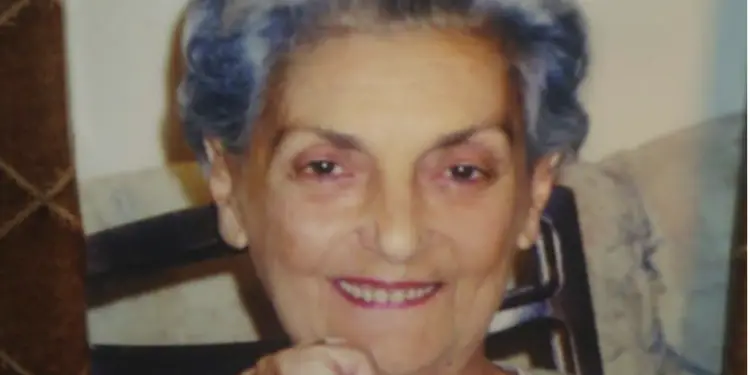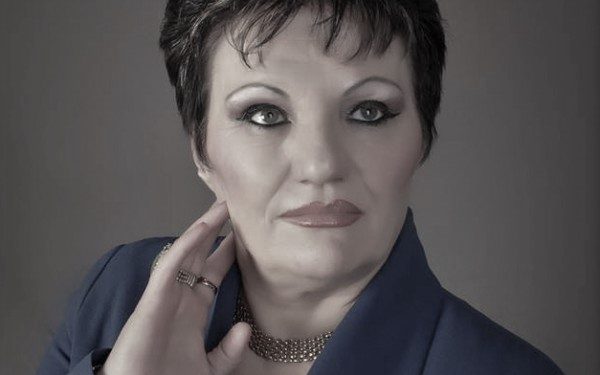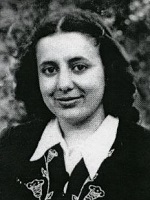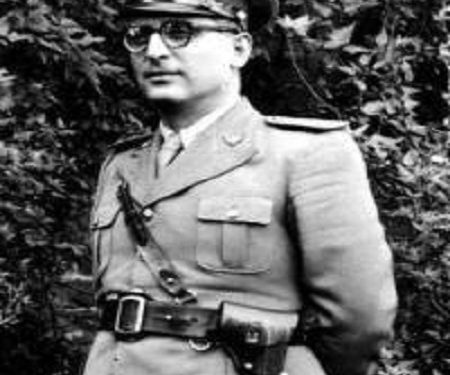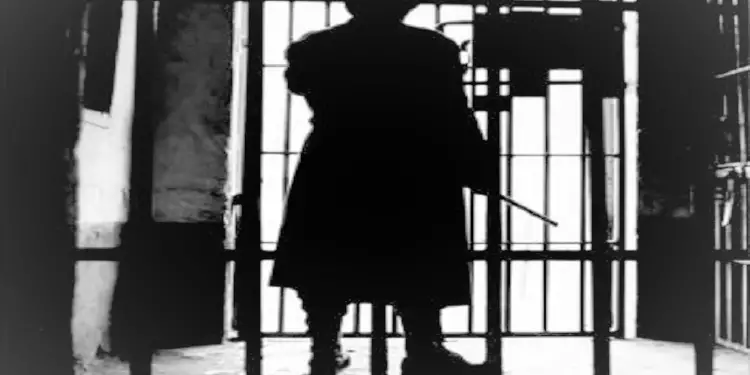By Raimonda Moisiu
Memorie.al / Raimonda Moisiu, the journalist living in the USA, makes available parts of the memories of Rita Sami Koçi, a former political convict for “agitation and propaganda”, from the age of 16. Among other things, it tells about fellow sufferers Musine Kokalari and soprano Merita Sokoli. Quite by chance, he learns about the suffering and difficult lives that a large part of Albanians went through before the 90s. The more you know of them, the more the names of the “black list” are added. The caravan of these sufferings seems to have no end. When Diti Biçaku appeared in the media some time ago, to tell a partial story of the arrest and subsequent shooting of her co-sufferer, Sabiha Kasimati, another name came out of the memory of those who read and listened to her story. Journalist and writer Raimonda Moisiu, who has been living in the USA for years, told us about another co-sufferer of the aforementioned, receiving encouragement from the year of the shooting of Kasimati, in ’51.
Rita Sami Koçi was another of the victims of the regime, who unfortunately is no longer alive, but has left written with her own hand, the history and sufferings of that part of life that tormented her even in the last days, in division rushed to finish everything kept in memory. Except he couldn’t…! Raimonda sends us today a part of the memories thrown on the pages of her diary. The rest is kept by the children, with the hope that one day they will do it all together, thus realizing the book that the mother wanted so much.
Ms. Raimonda, how did you establish relations with Mrs. Rita, at what time, and were her confessions the cause of this relationship?
It is painful that Rita Sami Koçi (Koka) is no longer alive. She passed away a few years ago. My virtual acquaintance with the Koka family happened almost a decade ago. I had just written and published in the Albanian press, precisely in the newspaper “Panorama”, the article entitled “Myteveli, the Beylers who laid the foundations of Korça”. Publicizing this article in the forums of the Albanian website on the Internet, in my e-mail, there is a message from ing. Genc Koka, who, among other things, said that he is the grandson of the beylers of Korça, the Mytevelians. This is where my virtual friendship started with Genci, the brother of Rita Sami Koçi (Koka).
In the ongoing conversation, Genci told me about his sister Rita, her life and that he was writing down his memories. One day, I started writing some scraps of memories and my friend, Genci, asked me to edit them and arrange them chronologically, just as Rita herself had asked him. As soon as I read “Bitter and Unforgotten Memories”, and “If a people cannot know pain, they will not be able to know happiness”, I shuddered and felt strong emotions from the beginning. I devoured every line of those chilling stories that brought alive the truth of the ordeal of pain and sacrifice.
When had Rita started to put down on paper the memories of the dark time of the prison?
Referring to the memories, but also from the conversation with Genci, Rita started to throw away her memories, at the time when she immigrated to Greece with her daughters. But also from the messages he sent to Genci from time to time, he expressed his desire to throw away all his memories and publish them in a book.
Referring to her confessions, when was she imprisoned, for how many years and for what reason?
He was imprisoned at the age of 16 or 17, in the 50s, which are known as the years of the wave of arrests, imprisonments, shootings and mass deportations of Albanian intellectuals and civic elite, whose contribution the communist regime saw as a danger to their power. After a year of terrible investigation, accompanied by torture and severe isolation, Rita Sami Koka (Koci) was sentenced to 10 years of imprisonment, with the motivation: “Organizer of groups in high schools, written and oral agitation and propaganda, against the popular, communist power of the Party”!
Rita Sami Koka was born in Florence, Italy in 1930. She is the daughter of former colonel Sami Koka, Deputy Chief of the Royal Staff and Commander-in-Chief of the Royal Border Guard and Finance during the Zog Monarchy period. He was also sentenced to 30 years in prison by the Special Court of March 1945. Rita spent almost 10 years in prison, together with her father, a fact that she also confesses in her notes.
How did her later life go?
After her release from prison, Rita married her fellow prisoner in Burrel prison, Xorxhi Koçi, a political prisoner since 1946. After the prison years, they spent several years in exile together with the family, in the Durrës Tower. The Koçi couple had 4 children, three girls and one boy. But unfortunately, their only son was killed when he was a soldier, when he was serving in the Labor Brigade, as a child of political convicts or with a bad biography.
When they told Rita’s husband, George Koç, about the death or “killing” of their only son (his “accidental death in the quarry” still remains a mystery, because the next day he was leaving with a few days’ leave for his family), the screams of the sadness and pain of that man, who had to endure torture and life in prison, have shocked the whole of Durrës. Worry and worry, which later cost him his life.
Why did he immigrate to Athens?
Rita left for Athens in 1998, next to her daughter, but also with the great pain of leaving her homeland, for which she suffered so much. Rita, although ill, wrote her memoirs.
Does she mention the names of other co-sufferers in her memoirs?
Rita writes with a lot of pain and admirable memory for two outstanding intellectuals, for the writer and intellectual, the outstanding politician Musine Kokalari, for whom she says that she was her island, and for the soprano Merita Sokoli, who I would really like, in case that someone knows about this outstanding soprano, write about him, as it was written about Musine Kokalari.
What else has she told you about her life?
I am giving you Rita’s confessions, which speak much more about her life.
Parts from the diary of RITA SAMI Koç (Head)
-In a cell with Musine Kokalari-
Dated May 19, 1950, 11:00 p.m
A knock on the door would disturb us, but it would also change the course of my life. Mom opened the door and several Security officers rushed into the 3×3 room, where we lived for 30 years and where we used only one toilet, 6 families. One of them asks who Rita Sami Koka is…! I tell him: “In the name of the people, you are under arrest.” The mother was extremely shocked and addressed the Security officers: “Amani, where are you taking my maid”?! They arrested me without telling me the reason.
At that time, it often happened that Sigurimi officers went to the houses of the persecuted, kidnapped their maids, allegedly to arrest them, raped them and killed them in remote and lost villages of Albania. I grabbed mom by the shoulder and said in a calm and firm voice: “Don’t be shocked mom; I haven’t done anything, that’s why I’ll be back”! They handcuffed me and left with me, leaving my mother in tears and sobs, in a state of shock and grief, as the other family members left, as if they were lepers. My attitude of pride and with my head held high, the courage I gave to my mother would also be mentioned in the interrogator, calling me; “very determined in my activity against popular power”. “According to you, – I address the investigator in the dungeons of the investigation, – what did you expect, to grab my mother by the corner of my dress and cry”?!
After a year of terrible investigation, accompanied by torture and severe isolation, I was sentenced to 10 years of imprisonment, under the charge of “organizing groups in high schools, written and oral propaganda agitation, against the popular, communist Party power”. Of course, I expected such an accusation, because in September-October of 1949, the “purging” began, and 16 students from the Technical and Gymnasium were expelled from the secondary schools. Among them were me and my little brother, Genci. Before I was moved from the dungeons to the convict camp, the friends with whom I shared the days and nights of solitary confinement instructed me to beware of a spy and provocateur recruited by the State Security, a former member of the National Front ‘, called Nurie M., from Vlora.
When he was in the Vlora prison camp, three boys decided to escape. They talked to Nuria about this, but she reported them to the director of the prison, Uncle Metani. And when they tried to escape, one was killed, remaining on the barbed wire trying to overcome them, while the other two were captured. One of the prisoners had been a teacher and we had adjoining dungeons. One day, going to the bathroom, he put a letter under the door, where he told me his whole story, and ordered me to tell Nurie Koculi (from Vlora), to inform his mother, that he was alive.
The poor mother knew her son was dead. When I moved from solitary confinement to the dungeon in the prison camp, I was met by several political convicts, among them the talented soprano, the wonderful Merita Sokoli, who took me into her small room, as Merita liked to call it. . I didn’t introduce Nurie M. at all, but I didn’t even want to see her and communicate with her. They all despised Nurien, calling him; “monster”. When director Metani was transferred from the Vlora prison to the Tirana prison, he took Nurien with him so that she could continue her mission as a provocateur and spy. She remained so loyal to her activity that she spied even on very simple things, which later became big issues. As much as I tried to ignore Nuria, I had to face the provocateur’s wickedness and hypocrisy with my soul.
A friend of ours had written a very beautiful novel, where he described Albania as an eagle tied in chains and bleeding from the blood of the killed. He showed me to see it in literary form (he was 16 years old and I was 18). I really liked the novel and told him that if we had the opportunity, we would write many copies like this and distribute them. He liked this idea of mine and did as I told him. This tract was multiplied and distributed, first in Shkodër. In Tirana, Lluka Dindi, who was 16 years old, a student at the Financial Technical School, distributed it. At first Ndoc Ljarja was arrested, then Lluka, Amik Kasaruho, Petro Konomi and I, three or four months later. When we were court-martialed as a group, I was asked if I knew the other members.
I said: “No! I don’t know them, nor have I ever seen them.”
In the trial group, Bardhyl Dindi was also included, in vain, because, apart from Lluka, who had something to do with him, none of the accused knew him and had not even seen him as a face. Bardhyli said about me that he only knew me as a face, that he had seen me in high school. The prosecutor, a major officer of the communists, tells me: “Of course you don’t know them, the president is always unknown.” After several sessions were over, the sentences were handed down. In the end, the prosecutor started asking us what we had to say for the last word. I said: “Nothing!”. “How?”, he tells me.
Do you call the punishment fair?”. “No! I don’t call it right at all, but my word doesn’t change anything, you decide for yourself, as it suits you, and for that I don’t ask you for mercy”! Years later, when I met my father in Burrel prison, among other things, he gently pulled my ear and smilingly told me: “Don’t be stubborn here in Burrel, like in court.” Hugging him, I said: “I’m not stubborn, father, but injustice revolts me.” My father hugged me tightly to his chest and again held back the tears that were breaking out. I only saw teary eyes.
We arrived in Milot, the bus stopped for the first break. The passengers got off to smoke cigarettes. Seeing those simple people, physically free but morally we were the same, inhaling the cigarette I wanted to smoke one with them. I told the guards, if possible, to let me smoke a cigarette outside. I went out accompanied and without making small talk, ordered for this from before. I saw that the Shkodra Estrada bus had just arrived. The actors laughed at each other and were in a good mood, talking loudly. Someone told them about me and their laughter stopped. They looked at me in surprise and talked something to each other in a very low voice. They looked at me with surprise and pain. Someone was shaking his head, as if asking himself: “What is happening like this”?!
I was not shocked at all, on the contrary, I felt proud and I tried to show this pride at every moment. I was condemned by communists, criminals, and the scum of the nation who had usurped the legitimate power. I was proud and with this pride I enjoyed those few hours of freedom, even though I was accompanied by policemen with automatic rifles. I felt free for a few hours outside the cell walls. When we arrived at Burrel prison, the deputy director was waiting for us. It was Sunday and the director was not there. At that time, Musine Kokalari was also in Burrel. The next day when the prison director Dino came, he saw that I was with Musina (and two other women) and he stayed for a moment, he thought and said to me: “The order from Tirana is for you to be isolated here by yourself”.
He took the four of us to show us the cell that was assigned to me. Burrell prison is embedded in a pit and surrounded by bushes. There was an unimaginable humidity, the walls oozed water and were softened, living plaster. The climate of the city itself was very cold. I, infected in the cells of the Tirana prison with scabies and lice, had to be cleaned. The prison doctor, Lush Pogu, also a convict, gave me the right medication. God forbid I didn’t get plevit, because I was forced to bathe outside in the snow. Hava Golemi and Xhemo Ahmeti held two sheets to protect me from the wind and frost, while Musineja threw me warm water while I was bathing. In the spring, Musineja and the other two women were transferred to Tirana prison. When they communicated the transfer, Musineja turned to me and said “Rita, how can I leave you alone in this hell”?! I told him: “Musin, just think of your elderly mother, who has not seen her for so long, why she couldn’t come here, I will go through it like you, did.” We parted with hugs and tears. So I was left alone.
December 24, 1950, Christmas Dinner
What the Communists did, the members of the SNP without exception, were not done either in Mathausen or Buchenëald. Let the convicts of Vloçishti, Juba, Beden, Spaçi, Ura e Bona, and how many other extermination camps tell. Merita Sokoli, one of Albania’s most talented sopranos, like Tefta Tashko, was arrested for politics and tortured during the investigation in the most inhuman way. Tied with irons, her hands and feet were hung on a hook just touching her fingertips; they left her like that for days. As she was addicted, her period came. He began to cry, clutching his legs.
When the guard entered, she began to tell him: “No, no! Please don’t come in”! When he entered, he saw her in that state, he laughed like an animal. Why be like that, man…! Gjergj Kokoshi, sick with TB, was also convicted in Burrel prison. They had isolated him alone. One day, a prisoner put a piece of paper under the door to greet him and give him courage. Someone spied on him and they isolated him in a cell with no mattress, no changes, and left him with only dry bread and water. It was winter and in Burrel, it was very cold (The one who spied him was a Cham, if I remember, his name was Dino). Thus, George took the plebit and at the same time went crazy. Later they took his clothes away, but he undressed and lay on the cement.
All the time he prayed to God and the saints, then he cursed Enver Hoxha, who once did not even consider him as a human being and an intellectual. He called his mother. He did not stop talking day and night, until his voice and his life went away together. I had him close to my cell and I listened to him, I felt sorry for him, but I couldn’t stand it. I put my hands to my ears and stayed like that for hours, until I fell asleep. When he died, I found out from the guards. And I started to cry like a child, I didn’t know him nor had I ever seen him, but I cried like a man with a soul, who lost his life under the torture of the executioners of the PKS. I write as these bitter and unforgettable memories come to my mind! Memorie.al




